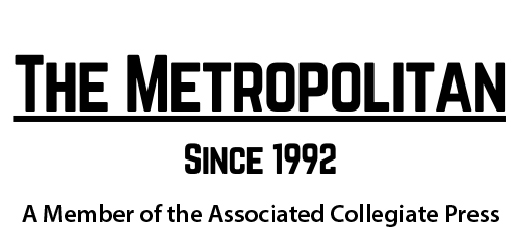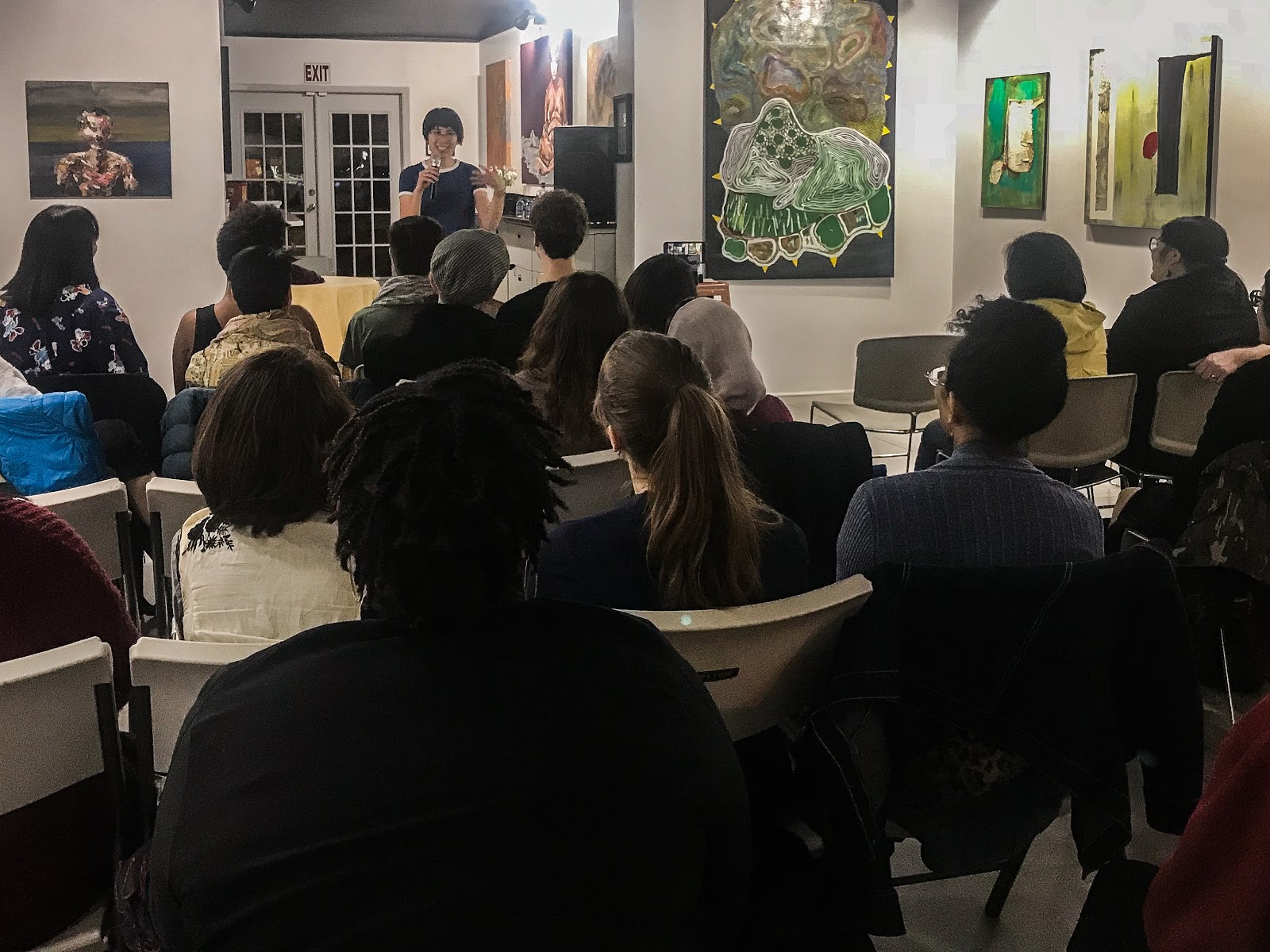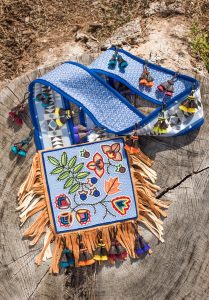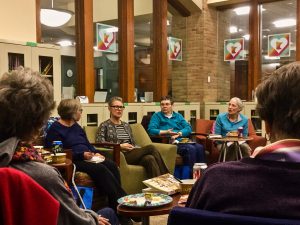Mai Houa Xiong
Share:
Female role models can be hard to find in the mainstream media—and even harder for young women of color. Women are expected to go along with status quo, be quiet and not speak. And those stereotypes are only heightened when it comes to Asian women.
That’s why award-winning women artists founded FAWK—the Funny Asian Women Kollective. Busting down barriers using comedic relief is their mission.
“Breaking the stereotype means you have to be loud,” said co-founder May Lee-Yang.
Created in 2014 by award-winning women artists Lee-Yang, Naomi Ko and Saymoukda Vongsay, FAWK strives to combat invisibility and dehumanization of Asian Pacific Islander American women (APIA).
FAWK hosts clapback cabarets that feature Asian Pacific Islander American female-identifying talent from across the country. Cabarets are held at the Indigenous Roots Cultural Art Center located on 7th Street, a few blocks from Metro State’s St. Paul campus.
A new series of cabarets feature students from previous clapback workshops. The first was held Oct. 27. Featured artists were Hebba Gouda, Patti Kameya, Marina Kittako, You Lee and hclou.
The artists tackled the tough topics of race, patriarchy, white supremacy and sexual health through performance art, comedy and storytelling. One artist offered an embellished personal harrowing tale of escaping overly curious white people. Another gave a tarot reading about the highly charged political climate and inciting of racism.
Dr. Patti Kameya, a teaching artist at the Loft and previously an assistant professor at the University of St. Thomas and Kent State University, performed an eye-opening skit.
Drawing on her teaching knowledge and volunteer time at the Mid-Continent Oceanographic Institute, Kameya presented “Today’s Edition of Modern Foods: Modern Sushi.”
The crowd mouthed along in Japanese as Kameya offered substitutes for sushi terms. “Ebi” (shrimp) became “pa-lees-teek stroh.” “Maguro” (tuna) became “see-lee-cohn bah-gah prose-thee-says.” “Ikura” (fish eggs) became “mih-croh bee-duhs.”
To their horror, audience members realized the expanded syllables were spelling out “plastic straw,” “silicon bag prosthesis” and “microbeads”—Kameya’s commentary on the plastic and material pollution piling up in the oceans.
Kameya closed out her act by confronting stereotypes and playing the kazoo. “Since Asian women are expected to be quiet, I encourage them to use the kazoo,” she said.
In her take on the current political climate in America, hclou ended the evening with uplifting advice.
“Bad things happen but take joy in the moment,” she said. “[When faced with racism] stand your ground—stand strong. Don’t use violence.”




